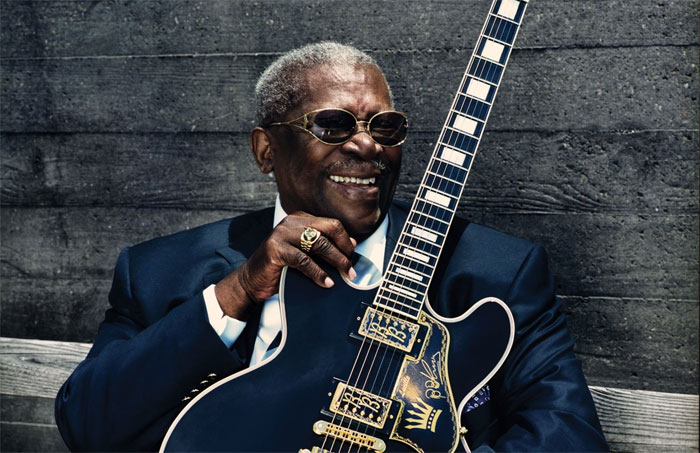Riley B. King, better known as B.B. King, was a towering figure in the world of blues music, revered for his soulful voice, masterful guitar skills, and profound influence on the genre. Born on September 16, 1925, in Itta Bena, Mississippi, King’s childhood was marked by the hardships of rural life in the segregated South.
Growing up on a cotton plantation, King was introduced to music at an early age, first singing in the church choir and later learning to play the guitar. His early influences included blues legends like T-Bone Walker and Lonnie Johnson, whose recordings he listened to on the radio.
At the age of 22, King made his way to Memphis, Tennessee, where he found work as a DJ at radio station WDIA. It was during this time that he acquired the nickname “Blues Boy,” later shortened to B.B., which would become synonymous with his legendary career.
King’s breakthrough came in 1949 with the release of his single “Three O’Clock Blues,” which topped the R&B charts and catapulted him to fame. Throughout the 1950s and 1960s, he churned out hit after hit, including classics like “Every Day I Have the Blues” and “The Thrill Is Gone,” establishing himself as one of the preeminent voices of the blues.
What set King apart was not just his virtuosic guitar playing, characterized by his trademark vibrato and expressive phrasing, but also his emotive singing style and ability to connect with audiences on a deeply personal level. His voice, rich with emotion and experience, spoke to the struggles and triumphs of African Americans in the Jim Crow era, earning him a devoted following around the world.
In addition to his musical talents, King was known for his warm personality and tireless work ethic. He toured relentlessly, playing hundreds of shows a year well into his later life, earning him the nickname “The King of the Blues.”
Over the course of his career, King received numerous accolades and honors, including 15 Grammy Awards, induction into the Rock and Roll Hall of Fame, and a Presidential Medal of Freedom. Yet, despite his fame and success, he remained humble and grounded, always attributing his achievements to the music and the people who inspired him.
B.B. King’s influence extended far beyond the world of blues, shaping the sound of rock and roll and inspiring generations of musicians with his passion, talent, and dedication to his craft. His legacy continues to resonate today, reminding us of the power of music to uplift, inspire, and unite us all. B.B. King passed away on May 14, 2015, but his music lives on as a testament to his enduring spirit and the timeless beauty of the blues.


No responses yet